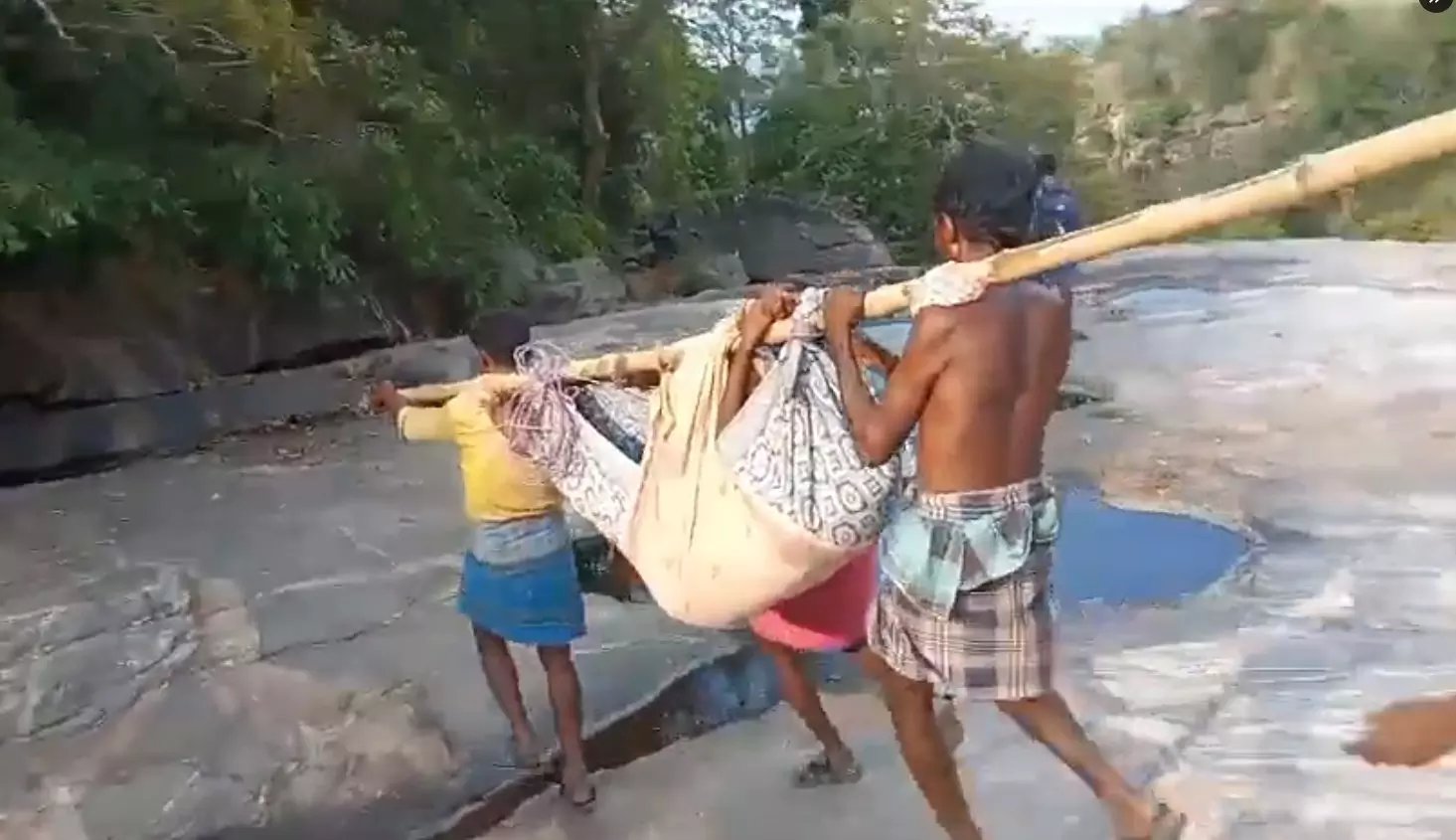
In tribal Gujarat, childbirth journey in cloth stretchers is often a woman’s last
Several pregnant women from Chota Udepur district have either died or had difficulty accessing medical care due to lack of roads and healthcare facilities

At the ungodly hour of 3 am, Ramila Rathwa, a pregnant tribal woman from south Gujarat, started experiencing shooting labour pain.
Living in a remote hilly village, Turkheda in Chota Udepur district, which has no roads, her family quickly placed Ramila, writhing in pain, on a makeshift cloth-and-bamboo stretcher and hurriedly carried her for three kilometres to Ambadungar where an ambulance was waiting.
The ambulance then took her to the nearest hospital in Vapi district, about 300 km away. Luckily, Ramila reached the hospital on time and delivered a healthy baby.
Also read: Gujarat tribals up in arms as govt hospitals get privatised
No motorable roads
However, Kavita Bhil, a 30-year-old pregnant woman from the same village, was not so lucky. Last week, she died after giving birth on the way to the hospital. Her family, too, had put her in a makeshift cloth stretcher and set out on a similar journey to access the nearest motorable road, where they could find an ambulance.
“We had covered just a kilometre on the rocky terrain when Kavita went into labour. She delivered a baby girl on the road and succumbed to massive blood loss. Her body was brought back home on the same cloth stretcher for her final rites,” her uncle Jamsinh Rathwa sorrowfully told The Federal.
“For several years, we have been requesting the government to construct a road in the village so that it will be easier for ambulance services to access the village but our pleas have fallen on deaf ears,” added Rathwa.
Noticeably, Kavita's death is the third such incident in the village in the past few months. A number of pregnant women from this tribal-dominated district of Chota Udepur have either died or had difficulty accessing medical care due to a lack of roads and healthcare facilities in the area.
Also read: Gujarat tribals wait for FRA claim settlement as govt takes over forest lands
Makeshift cloth stretchers
Praful Vasava, a tribal rights activist and a former AAP leader, explained, “Carrying patients in makeshift cloth stretchers is not an unusual sight in Chota Udepur. Most of the villages here have no primary health centre or accessible roads. In the past three months, three other women also met with a similar fate as Kavita. People have been requesting the government for years to construct a road across the district, but to no avail. The situation is more difficult and challenging here as most of the district is made up of hilly terrain.”
“It has been five years since the first tender was issued by the administration to construct the road from the state highway to Turkheda. But, of the approximately seven kilometres, only a 3-km stretch has been constructed so far. Moreover, for the past two years, the road work has come to a halt,” added Vasava.
MP alleges lack of cooperation
Interestingly, BJP Lok Sabha MP from Chhota Udepur, Jashubhai Rathva, wrote a letter to the district collector in September 2024 alleging that government officials were not cooperating and not giving any answers to his questions regarding public works in his constituency.
“I have not been received any timely response to my questions from the various government departments. When the responses are provided, they are incomplete and lack detailed information. Besides, the officials provide the answers only the day before the coordination committee meeting, giving me no time to study those. Specifically, two departments – roads and buildings, and the district agriculture department – are yet to answer my queries,” read the letter he had written to the district collector.

